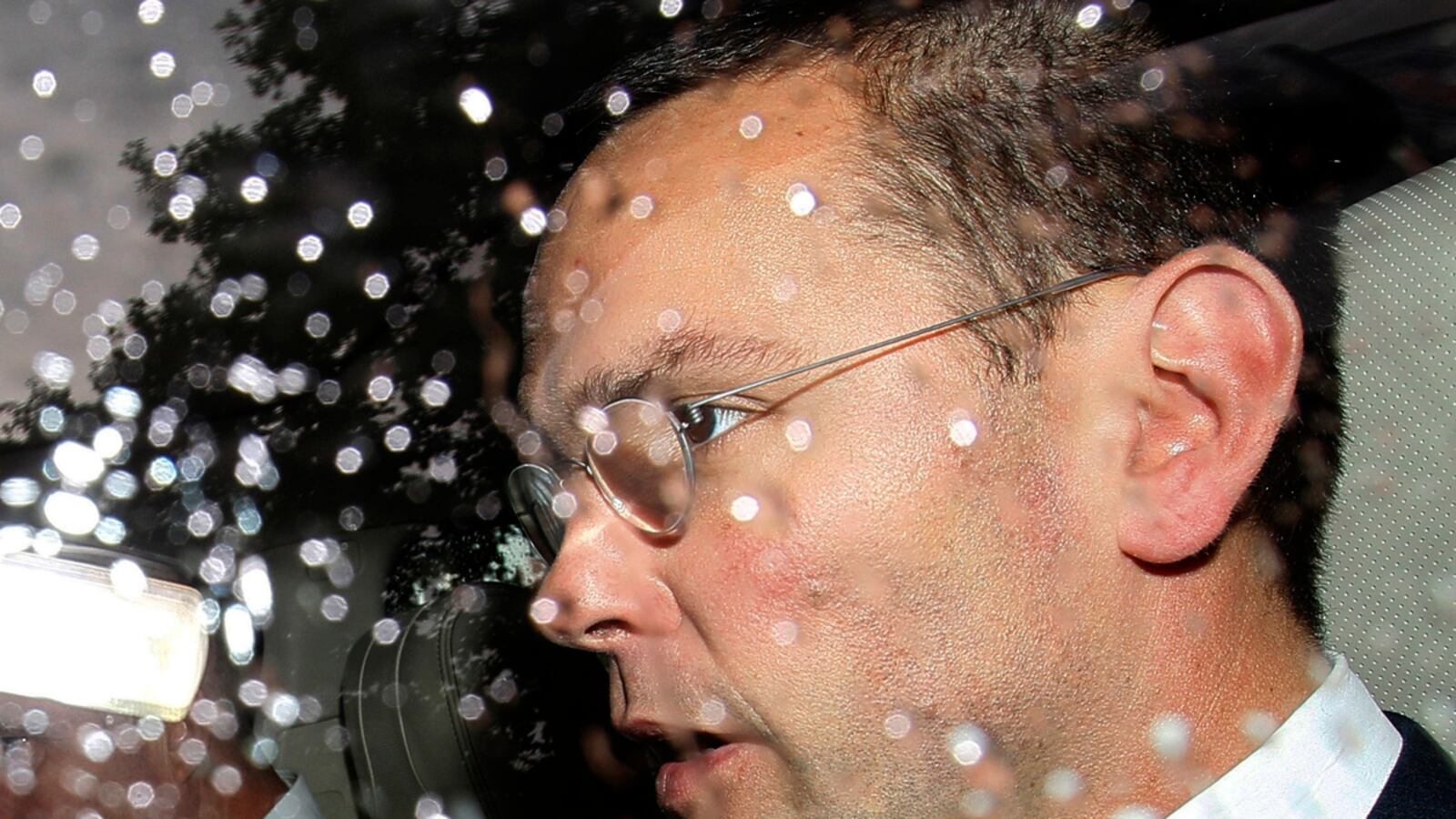Whatever happens to News Corp. now, it will surely happen without James Murdoch. A single meeting the 38-year-old had in London one day in June 2008 now haunts him to the point where, having been the clever, dashing heir apparent to his buccaneer father, Rupert, he has become a liability with little hope of survival.
Three people were at that meeting, called to discuss a critical problem that had arisen in the company’s defense of the first lawsuit brought by a phone-hacking victim. The other two were seasoned British tabloid operators who have now turned against James. They are Colin Myler, 59, editor of the shuttered News of the World and before that editor of its rival the Sunday Mirror, and Tom Crone, legal manager of that paper and its sister tabloid, The Sun, who worked for Rupert Murdoch for 26 years. Both have now lost their jobs.
James told members of Parliament this week that when he approved a payment of £725,000 (about $1.1 million) at that meeting to settle the lawsuit, he was not shown an email that suggested phone hacking was more widespread at the News of the World, and not limited to one “rogue” reporter.
He is saying one thing—that in briefing him they gave an “incomplete picture”—and, remarkably, in a statement Thursday, they publicly denied that. It is a significant moment, because it is the first public breaking of ranks among Murdoch executives to have occurred in the five years this scandal has been running. From here, the whole edifice of James’ defense threatens to crumble away, and it could do so in days.
They all used to tell the same story. Back in 2009, when The Guardian first published evidence suggesting that voicemail hacking at The News of the World had not been an isolated, “rogue” event, the company’s response was solid. Crone and Myler went before members of Parliament to say it was all untrue. So did Les Hinton, who has recently resigned as CEO of Dow Jones but who had previously worked for News Corp. in London, and so did Andy Coulson, who had edited the paper at the time and who was by then chief media adviser to British Prime Minister David Cameron.

One by one as the pressure has grown these people have been cast off or have drifted away. Even Rebekah Brooks, Rupert Murdoch’s London favorite and the chief executive of News International, has quit.
What this means is that James is now in the front line of his own defense and, when he tries to blame any of these others they are likely to bite back, telling their own stories and defending their own interests. He attempted it, recklessly, with some of his company’s external lawyers, and they are now on his case. The same is happening with Crone and Myler.
In a statement Thursday night, James said he stood by his comments before the Parliamentary committee.
There was a “smoking gun” email back in 2008, strongly suggesting that hacking at The News of the World was more widespread than admitted, and as soon as it appeared in the lawsuit brought by the first phone-hacking victim, soccer official Gordon Taylor, Crone and Myler knew the case had to be settled. James says that when they briefed him they did not show him the email; they say they did.
If this was just a difference of recollection it might not be that bad for James, but it isn’t, because every other indication supports Crone and Myler. Most notably, James went on to authorize a huge settlement of £725,000, which, though he denies it, most observers have construed as hush money. Why pay a fortune in hush money if you haven’t seen the email you want to hush up?
There will be more of this kind of disagreement. The legal interests of Coulson and Brooks have now diverged dramatically from those of James; like Crone and Myler, they cannot afford to let him or his father blame subordinates, even if not by name, because by implication that is clearly them. The arguments will be public ones, which means James’ position as effective No. 2 in News Corp. will become more difficult to sustain.
The old double question in these scandals is: Who knew what and when did they know it? Not long ago the people who knew the answers were a small, tight band, all together in the News International bunker at Wapping in East London. Now the little group has splintered and scattered, and they all need to save their own skins.
Members of Parliament do not like loose ends and contradictions, and they are likely to recall James to explain the anomalies in the evidence he gave this week—David Cameron on Friday called on him to return to Parliament, but that recall cannot happen now until the autumn. If James still has a position of importance inside News Corp. by that time, it will be a surprise.






